Trade Order Management Systems For Financial Advisors
Why do you need a trade order management system (OMS)?
For one, it makes life on the trading desk so much easier. Trade order management systems provide a centralized place to manage trading workflows and execute trades.
It also makes it easier for advisors to live up to their fiduciary duties of obtaining best prices for clients. When your tech has built-in best execution capabilities, it can streamline that process.
Intrigued? We’re just scratching the surface.
This article explains how an OMS, when implemented correctly, gives you the features and capabilities you need to fully streamline your trading processes. Learn more about The Cost of Holding On: Why Legacy Trading System’s Could be Undermining Your Firm’s Growth

TRADE ORDER MANAGEMENT PROCESS
FINRA states:
While the FINRA definition only includes broker-dealers, best execution monitoring goes further than that in actual practice. Best-in-class RIA firms and asset managers also typically provide monitoring of their brokers’ execution quality as part of their fiduciary commitment to their clients.
Done correctly, best execution leads to greater consistency across your processes and, ideally, happier clients. For many firms, achieving consistent best execution in the trade order management process means applying advanced trading techniques, outsourcing services and automating the mundane (albeit necessary) tasks.
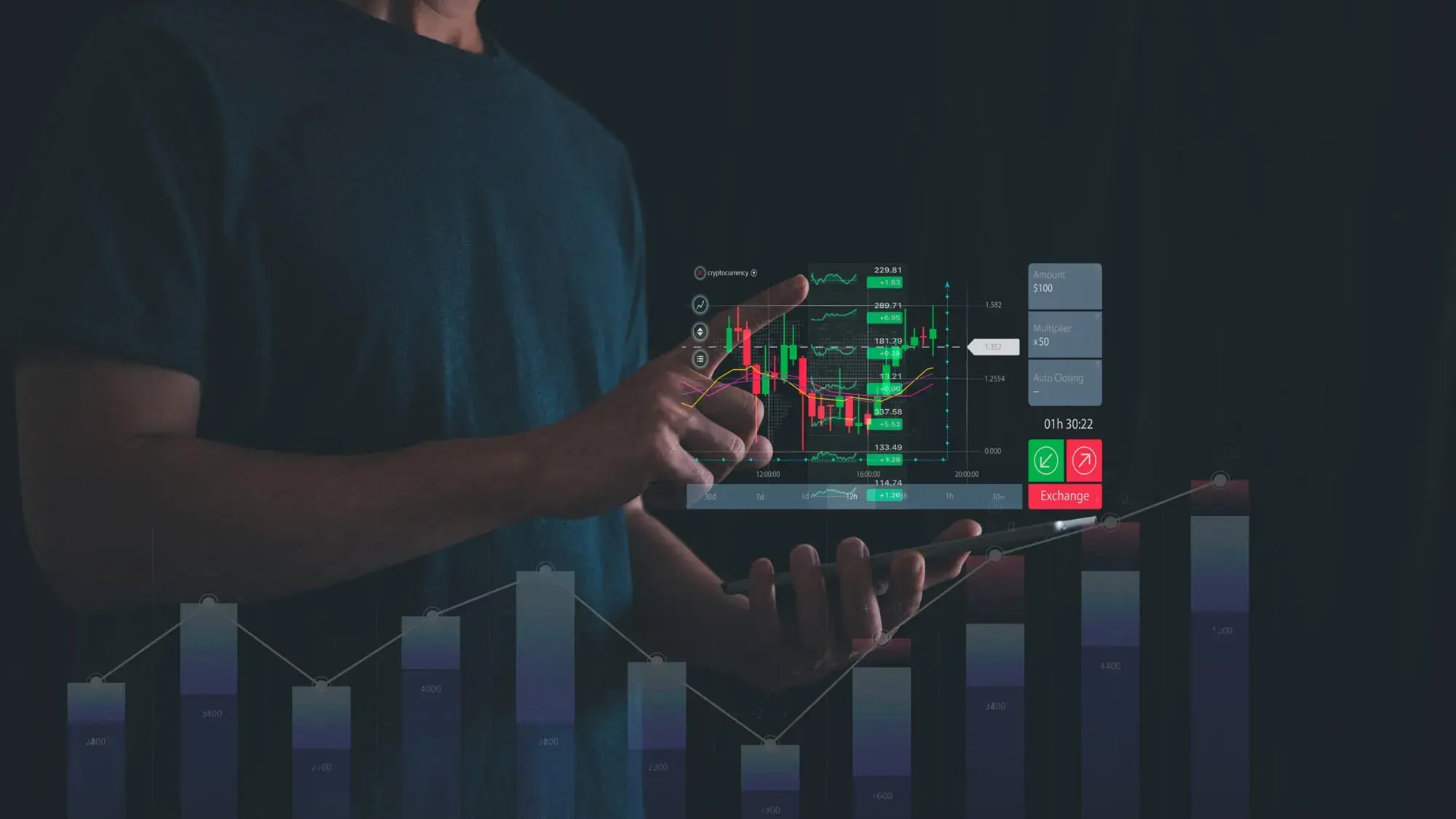
APPLYING ADVANCED TRADING TECHNIQUES
Here at Flyer, we utilize a trade order blocking process that provides fair and equitable execution across all accounts. We also know that investment managers have greater control over the process through working the order, or slicing it into smaller increments to get a better feel for the liquidity in that security.
OUTSOURCING TRADING SERVICES WITH OMS AS A SERVICE
Outsourcing trading services can improve the advisor experience and bring consistency to everyday tasks. At times, these solutions can lack customization for each individual firm they serve – but others are built with customization first in mind, especially if they are built on an open API infrastructure. Partnering with outsourced partners who use an open API is essential for enabling your firm to get the most of your entire tech stack and the third-party integrations and automations possible between all your software partners.

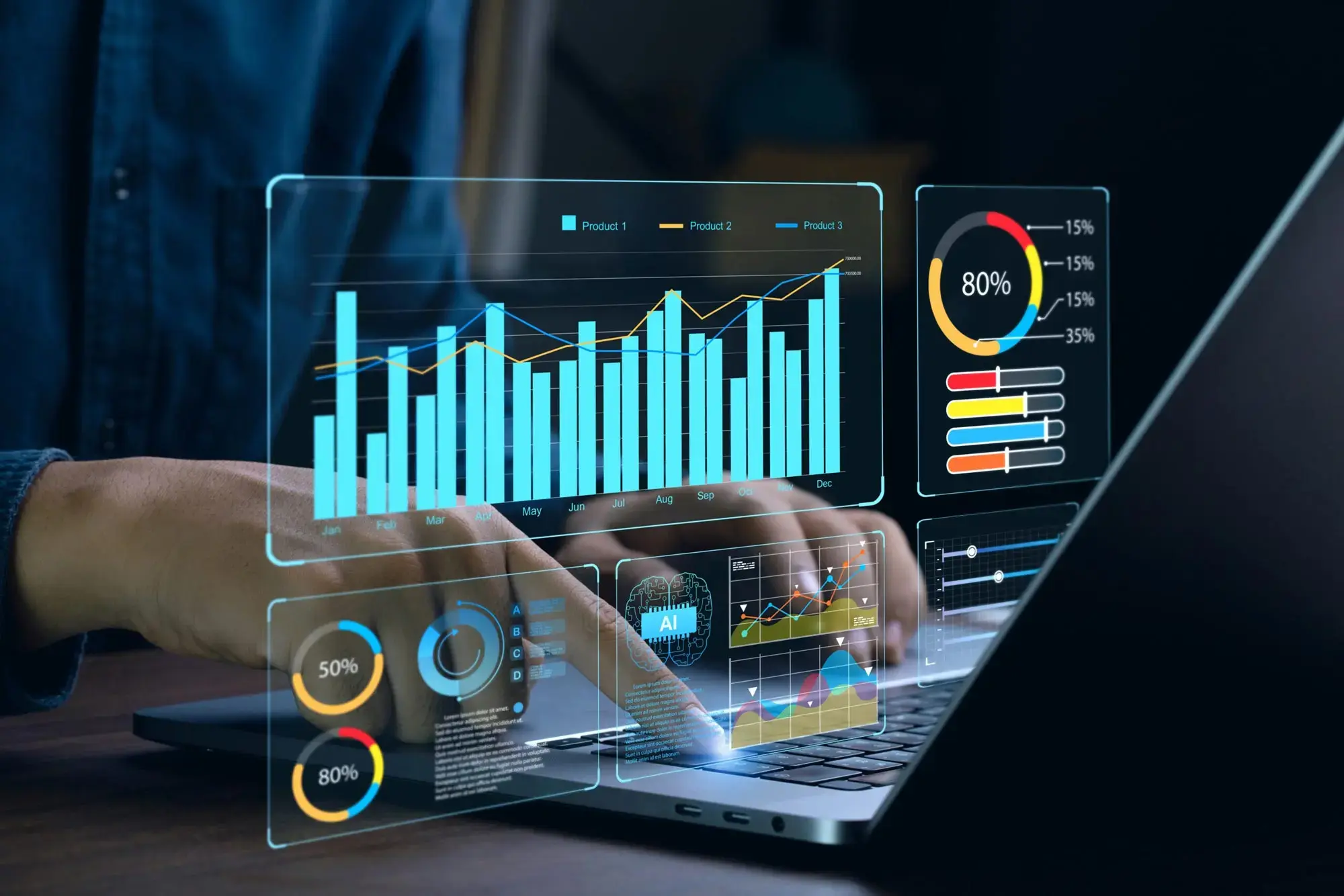
AUTOMATION AND THIRD-PARTY INTEGRATIONS
Automation is especially valuable during post-trade processing, where lack of consistency across custodians can keep you and your employees from heading home for the day. Co-Pilot OMS leverages Flyer Trading Network, a order routing and allocation network, to electronically transmit post trade notifications to your brokers and custodians – all while automatically formatting those files based on the specific custodian’s requirements. Co-Pilot also offers third-party accounting integrations to send the post-trade information directly to the accounting system of your choice.
Related: Why the Right Trading Network makes Order Management Work at Optimal Speed.
The Future of Trading: Why Agility & Automation Are Key to Rep and IAR Success
CO-PILOT
POST TRADE NOTIFICATION WORKFLOW
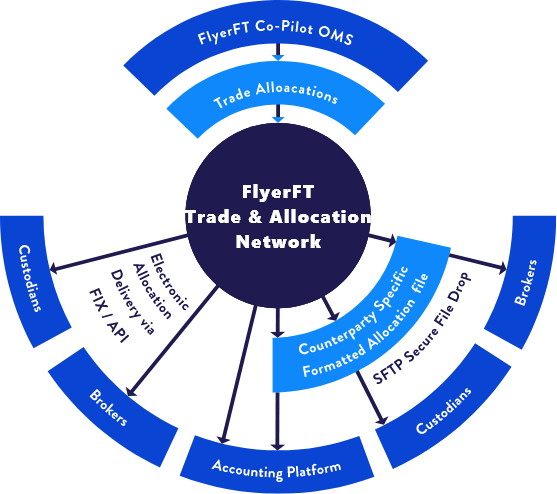
ORDER AND EXECUTION MANAGEMENT SYSTEM
Better trade processing begins with implementing systems that promote efficiency for clients, the overall firm and its advisors. There are two main benefits that make trade processing solutions a worthwhile investment:

REDUCED RISK
PMS vs. OMS vs. EMS
Let’s explore the differences between three trading systems: a portfolio management system (PMS), order management system (OMS), and execution management system (EMS).
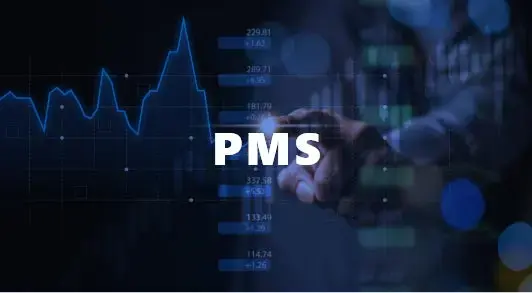
PORTFOLIO MANAGEMENT SYSTEM (PMS) OVERVIEW:
A PMS offers an “IBOR” (Investment Book of Record) allowing accurate intraday updates of cash, positions, mark-to-market valuation, tax lot selection and unrealized and realized gains/ losses. The tools offered by a PMS allow you to accurately manage your client’s multi-asset portfolio of investments.
Who Benefits Most from a PMS:
RIA firms or any organization managing multi-asset portfolios
ORDER MANAGEMENT SYSTEM (OMS) OVERVIEW:
An OMS is built to manage position valuation intraday, construct orders in a variety of different ways, and perform order compliance checks to be sure that the user has some guardrails for creating orders. In trade management, OMS can provide:
- Trade blocking
- Trade instructions
- FIX connectivity to execution destinations
- Algorithmic trading options
- Account allocations
- End-of-day (EOD) broker and custodian notification
WHO BENEFITS MOST FROM AN OMS:
- Teams who focus on intraday trading or want to implement algorithmic trading
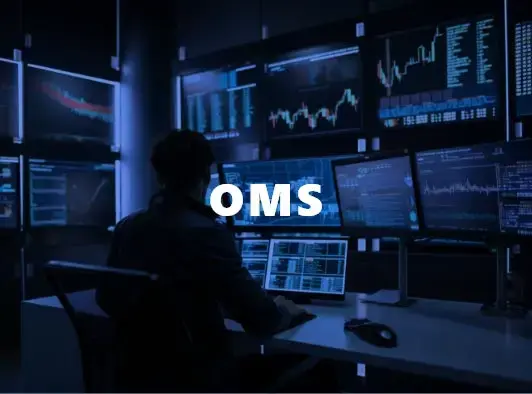
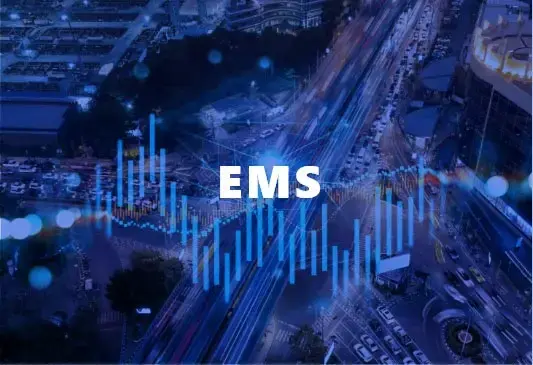
PORTFOLIO MANAGEMENT SYSTEM (PMS) OVERVIEW:
Lastly, an EMS is specifically built for execution and customization via speed, trade volume and analytics – rather than building and maintaining model portfolios or rebalancing accounts. If you care more about filling a large order at the right price than about executing a set number of shares for each account, an EMS is the right choice for you, as you can customize trading algorithms to fit the specific trading needs.
EMS also delivers real-time price quotes and access to more advanced trading methods with the ability to trade away from your broker.
Who Benefits Most from a EMS:
- Active traders and hedge fund managers
THE CO-PILOT APPROACH: OEMS
With Co-Pilot, we’ve combined the best features of all three system types to create an “OEMS.” The hybrid system centralizes all aspects of the trading workflow under one roof – from the trade construction to OMS to EMS to trade allocation to a trading network that connects you directly to brokers and custodians.
Rather than contacting a broker to execute orders, you can do it all within one application. We expedite connectivity as one company with both an OEMS and a trading network – the same operator and team – to improve the overall cost and time-to-market for the customer, increase speed and reduce costs.
Related: Technology Tools: Cutting Through the WealthTech Noise.
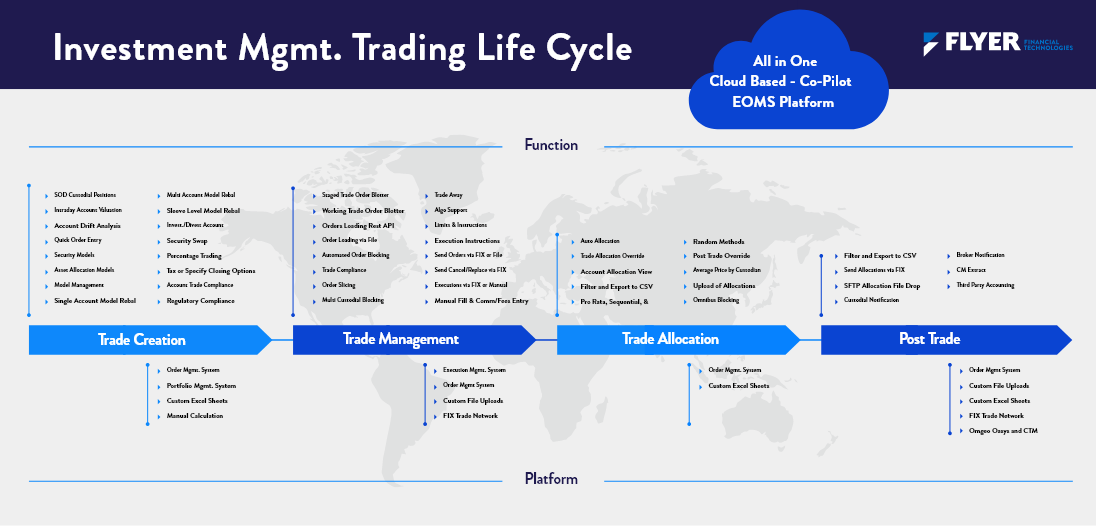

ALGORITHMIC TRADING
One key feature you may find during your search for an OMS is algorithmic trading. Also known as algo trading, this term describes automated trading that functions via code. Humans set parameters for the trade, and then let the code do its thing – sans manual clicks and keystrokes.
With algo trading, a human trader doesn’t need to constantly monitor prices or even be the one to execute stop-loss and limit orders. The program automatically monitors markets and prices based on the parameters given. When a trigger is tripped, the trades are executed.
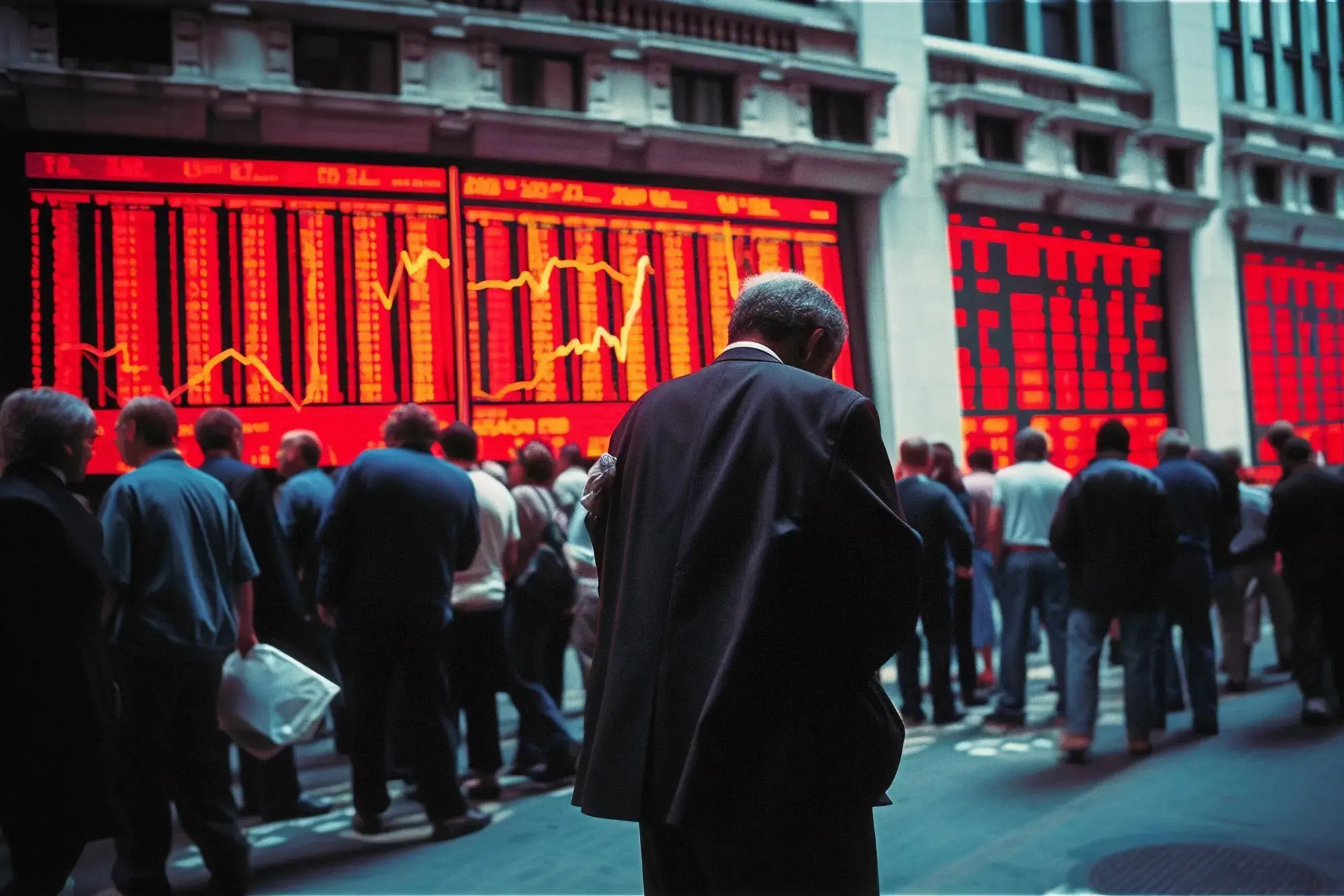
THERE ARE THREE MAIN BENEFITS OF ALGORITHMIC TRADING

01
The ability to make decisions more quickly
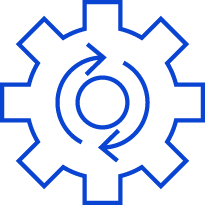
02
Immediate, automated trade execution – without the need for manual work
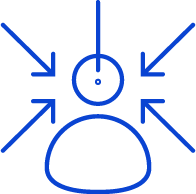
03
Less opportunity for human error
When your trade order management system is developed with OEMS capabilities, algo trading and a multi-asset trading platform, your organization is prepared to deliver best execution with higher efficiency and compliance.
MULTI-ASSET TRADING PLATFORM
In addition to algo trading capabilities, another important capability is multi-asset trading in individual portfolios.
Multi-asset trading is the ability to manage multiple asset classes in one portfolio – from equities, to ETFs to mutual funds to options to fixed income. With several asset classes at play within these portfolios, investment managers have to balance risks with big-picture decisions.
Not all OMS platforms offer the same functionality when it comes to multi-asset trading, but Flyer has teamed up with industry leaders like Envestnet | Tamarac, plus others, to bring expanded integration support and trading capabilities that allow advisors and asset managers the much-needed flexibility of multi-asset management.
DO MORE WITH FLYER CO-PILOT
Our advanced order management system delivers higher efficiency for each and every trade. Click here to learn more or schedule a call with a member of our team today.